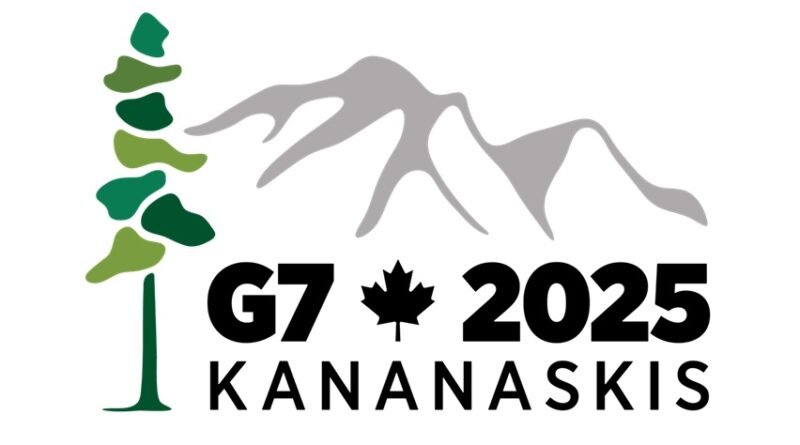Prime Minister Narendra Modi to Attend 51st G7 Summit in Canada Amid Strained India-Canada Relations
Introduction
In a significant diplomatic move, Prime Minister Narendra Modi on Friday announced that he will be attending the 51st G7 Summit in Kananaskis, Canada, scheduled to take place from June 15 to 17, 2025. The confirmation came via an official post on social media platform X, where PM Modi disclosed that he had received an invitation from the newly elected Canadian Prime Minister Mark J. Carney and expressed enthusiasm about participating in the summit.
Modi’s Confirmation and Message to Canada
Glad to receive a call from Prime Minister @MarkJCarney of Canada. Congratulated him on his recent election victory and thanked him for the invitation to the G7 Summit in Kananaskis later this month. As vibrant democracies bound by deep people-to-people ties, India and Canada…
— Narendra Modi (@narendramodi) June 6, 2025
PM Modi’s remarks suggest a diplomatic thaw and a willingness to pursue constructive engagement with the Carney administration, despite recent challenges in the bilateral relationship between India and Canada.
Backdrop: Speculations Over Modi’s Absence
Until recently, reports had speculated that PM Modi was unlikely to attend the G7 Summit, owing to ongoing tensions between India and Canada stemming from serious diplomatic issues in 2023–24. The announcement now puts an end to these rumors and indicates New Delhi’s intent to engage multilaterally, even with countries where bilateral tensions exist.
India-Canada Relations: A Tumultuous Period
The Hardeep Singh Nijjar Controversy
The India-Canada relationship took a dramatic downturn following the assassination of Sikh separatist leader Hardeep Singh Nijjar in 2023 in British Columbia. Former Prime Minister Justin Trudeau accused the Indian government of involvement in the killing—allegations India categorically denied, labeling them “absurd and politically motivated.” Despite Trudeau’s public statements, no concrete evidence was ever presented.
This controversy escalated into a full-fledged diplomatic crisis:
- Both nations expelled diplomats.
- Canada suspended bilateral trade negotiations.
- India curtailed visa operations in Canada.
- The Indian diaspora in Canada faced heightened scrutiny.
Pressure from Sikh Separatist Groups
In the lead-up to the G7 Summit, Sikh separatist groups urged the Canadian government not to extend an invitation to PM Modi. Their appeal cited India’s supposed lack of cooperation in the Nijjar investigation and accused India of targeting dissenting voices abroad.
However, Carney’s decision to invite PM Modi signals a possible shift in tone from the Trudeau era and hints at a more balanced, diplomatic approach under the new leadership.
New Hope Under PM Mark J. Carney
PM Mark J. Carney’s election earlier this year has introduced a potential opportunity for a reset in India-Canada ties. Although Carney has yet to directly address the Nijjar controversy in detail, his foreign policy focus appears to be geared toward trade, diplomacy, and pragmatic engagement.
India has responded positively, expressing hope that the new leadership in Ottawa will take “a more judicious approach” and rebuild ties based on “mutual respect and understanding.”
India’s Expectations from Canada
India has clearly communicated its priorities to the new Canadian administration:
- Ensuring the safety of Indian diplomats in Canada.
- Curbing the rise of separatist and extremist elements promoting anti-India agendas.
- Promoting people-to-people and economic ties over politically motivated narratives.
A potential bilateral meeting between Modi and Carney on the sidelines of the G7 summit could play a critical role in restoring trust and setting a roadmap for cooperation.
The G7 Summit: A Platform for Global Engagement
The Group of Seven (G7), comprising Canada, France, Germany, Italy, Japan, the United Kingdom, and the United States, serves as a forum for discussions on:
- Global economic policy
- Climate change and sustainability
- Geopolitical stability
- Artificial Intelligence and digital governance
- Security and counter-terrorism
India has been a regular invitee to G7 summits in recent years, reflecting its rising global profile and strategic importance. PM Modi’s presence at the 51st G7 Summit underscores India’s commitment to contributing to global governance, multilateralism, and peace.
Strategic Importance of India-Canada Reset
The timing of this renewed engagement carries strategic significance for both nations:
- For Canada, maintaining ties with India is essential to diversifying trade partnerships beyond the United States and China.
- For India, engagement with Canada is critical for access to natural resources, education opportunities for Indian students, and influence within the diaspora community.
Additionally, both democracies are part of broader Indo-Pacific strategic frameworks and share common interests in climate action, AI ethics, and supply chain resilience.
Carney’s Approach: Pragmatism over Politics
While PM Carney has maintained that Canada is not responsible for the deterioration in ties, he has signaled interest in using trade and cooperation as instruments for normalization. His leadership style appears more measured and pragmatic than his predecessor’s, and that bodes well for India-Canada relations moving forward.
Conclusion: A Pivotal Moment in Bilateral Ties
PM Modi’s decision to attend the 51st G7 Summit in Canada marks a crucial diplomatic moment. Despite the complex history and recent tensions, both India and Canada seem willing to engage in dialogue, collaboration, and reconciliation.
Whether this summit will serve as a turning point in India-Canada relations depends not only on the interactions between the two Prime Ministers but also on how both countries manage sensitive issues such as extremism, diaspora politics, and diplomatic trust in the months ahead.

